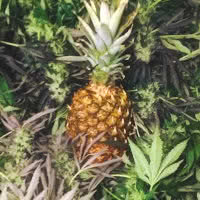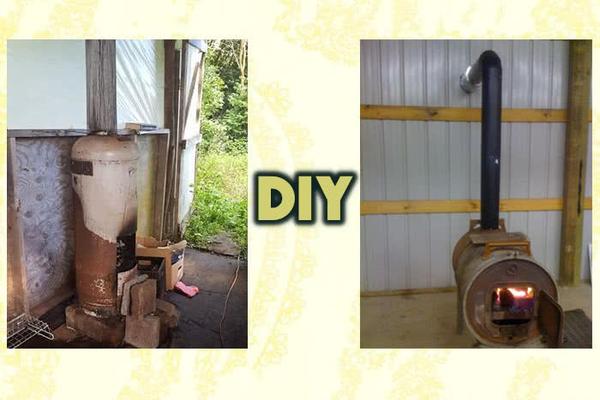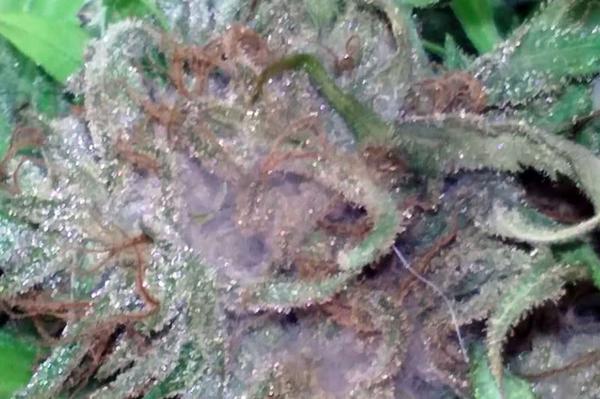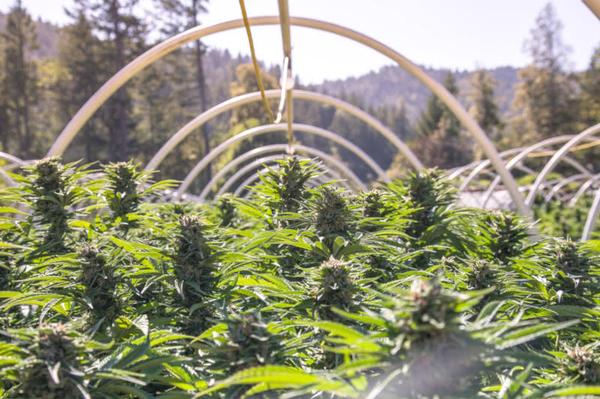Seeds vs Clones: Which is Better for Growing Cannabis?

The ultimate guide to growing cannabis from seeds vs clones! Explore the advantages, drawbacks, and expert tips to choose the best method for your cultivation success.
Selecting the right starting point, whether using seeds or clones, can significantly influence your grow’s health, yield, and overall efficiency. This comprehensive comparison of seeds vs clones in cannabis cultivation provides the essential insights needed to optimize your growing strategy and achieve the best possible results.
Introduction: Seeds or Clones?
Growing cannabis has never been more popular or more accessible. Thanks to continual legalization efforts and advanced horticultural research, cultivators now have an abundance of quality resources at their disposal. One of the biggest choices a grower faces is how to start their grow:
- Cannabis Seeds: The classic and arguably more “traditional” route.
- Cannabis Clones: A faster, more controlled option—if you can get your hands on them!
Many growers are passionate about their preference. Some value seeds for their genetic variety and natural resiliency; others can’t live without clones, citing fast turnaround times and guaranteed known traits. By the end of this deep dive, you’ll have a thorough understanding of both sides, plus an inside look at Seedsman’s brand-new clone program.
Understanding Cannabis Seeds
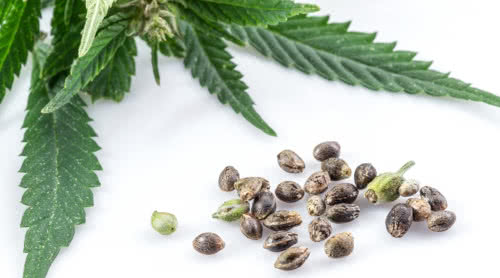
How Seeds Are Created
At the most fundamental level, cannabis seeds are formed when male pollen fertilizes female cannabis flowers (unless we’re talking about feminized seeds, which undergo a special process to reduce or eliminate male chromosomes). When left in natural conditions, a female plant will produce seeds if it gets pollinated—this is nature’s way of ensuring the survival of the species.
Regular, Feminized, and Autoflower Seeds
Regular seeds can produce both male and female plants. Typically, the split is about 50/50. Breeders and old-school cultivators prefer regular seeds when they want to create new crosses or experiment with breeding, since male plants are crucial for pollination.
Feminized seeds are bred using specific techniques to virtually guarantee female plants. That means nearly every seed you germinate will grow into a bud-producing female. Feminized seeds are a favorite for most home growers who want simplicity and don’t want to worry about pulling out male plants.
Autoflowering seeds come from cannabis ruderalis genetics, which allow plants to begin flowering after a certain amount of time rather than depending on changes in light cycles. They’re typically fast, easy to grow, and ideal for smaller setups or new growers.
Advantages of Growing from Seeds
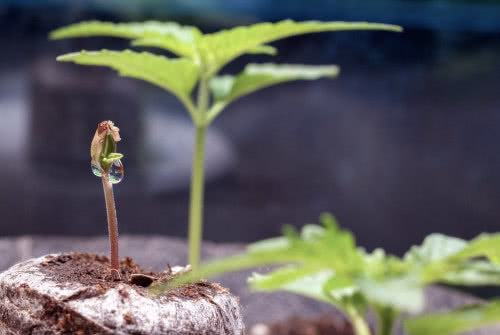
Wide Genetic Variety
Seeds offer a vast genetic pool. A single strain might present multiple phenotypes (expressions of the plant’s genetics) that differ slightly in aroma, flavor, plant structure, and even cannabinoid and terpene content. Some growers love this “treasure hunt” aspect—finding a special phenotype can be very rewarding.
Natural Start and Strong Root Systems
Plants grown from seeds often develop robust root systems, including a strong taproot that helps anchor the plant in soil and absorb nutrients. This can be a significant advantage if you’re growing outdoors, where sturdiness and resilience are vital. As one Reddit user put it online:
“I’ve heard clones don’t form as strong of a tap root. So for outdoor growing, where a tap root makes for a stronger plant, wouldn’t seeds be better?” – u/urnbabyurn
This is a common belief among growers who see taproots as a path to vigorous growth, especially outdoors where nature can throw wind, storms, and varying climates at your plants.
Accessible and Easy to Store
Buying seeds online is easier than ever, and they’re often perfectly legal to own in many regions—even if germinating them isn’t allowed yet. Seeds can also be stored for years in a dark, cool, and dry environment such as your refrigerator, allowing you to keep a personal seed bank of favorite varieties.
Potential for Breeding Your Own Strains
Once you understand how genetics work, it’s fun to cross two of your favorite plants to create your own custom cannabis variety. Pollinate your female with a chosen male, collect the seeds, and enjoy entirely new flavors, potency levels, and growth characteristics. Starting with reliable, high-quality seeds means your breeding journey can lead to highly stable offspring over time.
Disadvantages of Growing from Seeds
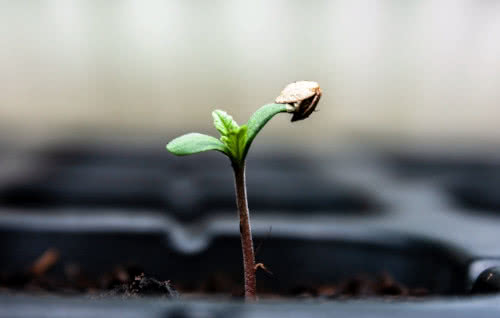
Germination Risks and Time
No matter how reputable your seed bank is, some seeds just don’t pop. It’s nature. Often, breeders aim for 90–95% germination rates, but that number is never 100%. The germination phase also takes careful handling and a bit of patience. You have to keep seeds in a humid, stable environment for a few days (or up to a week) before they emerge. After that, you’ll spend another couple of weeks carefully nurturing seedlings to ensure strong roots.
Genotypic and Phenotypic Variation
Some growers want uniformity in their crop, especially if they’re running a commercial operation or simply prefer consistent results. Seeds can express unique traits, even if they come from the same mother plant. This means varying plant heights, shapes, flavors, and yields. While some home growers love this variety, others may find it frustrating.
Longer Timeline to Harvest
Seeds generally take longer to finish, simply because you have to get them from germination to healthy seedling and beyond. Conversely, clones skip that initial seedling phase entirely, giving them a head start in the growth race.
Understanding Cannabis Clones
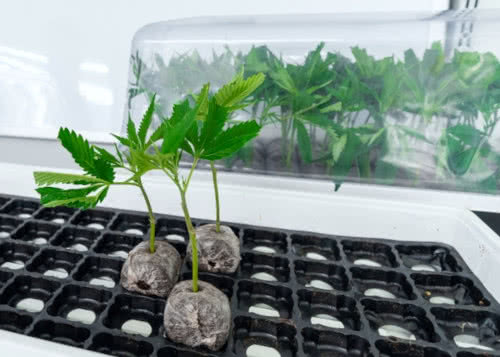
What Is a Clone?
A clone is a cutting (or “cut”) taken from a living cannabis plant, usually a mature female in a vegetative state. A typical cutting is a branch tip a few inches long. With proper rooting methods, this cutting will develop its own roots and become an independent, genetically identical plant.
How Are Clones Obtained?
Clones typically come from “mother plants.” A mother plant is a carefully selected female that exhibits outstanding characteristics—potency, yield, flavor, disease resistance, or all of the above. Growers keep that mother in perpetual vegetative growth under controlled lighting and feeding regimens. They trim branches for clones from time to time, allowing them to produce numerous genetically identical offspring.
Advantages of Growing from Clones
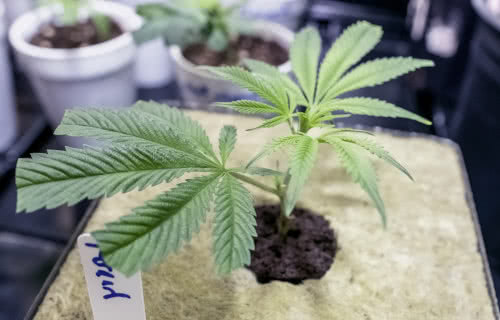
Predictable Genetics
Since a clone is an exact genetic copy, you know its characteristics upfront. It’s easier to plan how each plant will behave in terms of height, flowering time, aroma, and yield. If you liked how the mother performed, you’ll get those same traits from her clones.
Faster Timeline and Skip the Seedling Stage
Clones are usually already a couple of weeks “old” in terms of growth. As soon as they form roots, you can transfer them into your preferred medium and watch them shoot up quickly. That jumpstart saves time, which can be invaluable for commercial growers or anyone who wants to run multiple harvests per year.
Guaranteed Females (If Taken From a Known Female)
Because clones come from a known female, they’re almost always female (barring any environmental stress that might cause hermaphroditic issues, which is rare). You don’t have to spend extra time sexing the plants or worrying about pollination.
Disadvantages of Growing from Clones
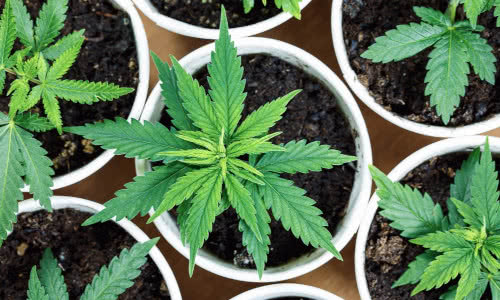
Difficulty Sourcing Reliable Clones
Unlike seeds, clones must come from a vegetating female. That means someone has to physically cut them and hand them to you (or ship them to you, in specialized packaging). In many places, it’s hard to find reliable cuttings free from pests or diseases. If you don’t have a local network of trusted growers, getting legitimate, healthy clones can be a huge hurdle.
Potential for Hidden Pests and Diseases
Clones may carry pests, fungus, or viral infections like Hop Latent Viroid (HLVD), especially if they come from large-scale or improperly maintained facilities. Even if the plant looks healthy, it might have issues lurking in the roots or between leaf folds. Here’s a quote from one user expressing concern over purchased clones:
“I’ve seen enough places claim to test for viroids and still have full infected mother stock to not trust clone sellers. You need regular testing of all mother plants including roots to be on the safe side but with how HLVD can lie dormant, it’s a risky game.” – u/New_Substance0420
Many cultivators share these sentiments, which is why it’s crucial to purchase clones from reputable, transparent vendors who perform thorough testing.
Fragile Starts and Need for Careful Handling
Although clones skip the seedling stage, they have their own delicate rooting stage. The cutting has to form roots in a stable environment with high humidity and consistent temperatures. If the environment shifts drastically, clones can quickly become stressed, stunted, or even fail to root altogether.
Carrying Over Unwanted Genetics or Issues
If the mother plant has an undesirable genetic trait—like lower potency or a tendency to herm under stress—every clone it produces will inherit that trait. Some flaws aren’t visible right away, leading to surprise issues late in the grow.
Real Growers, Real Opinions: User Comments
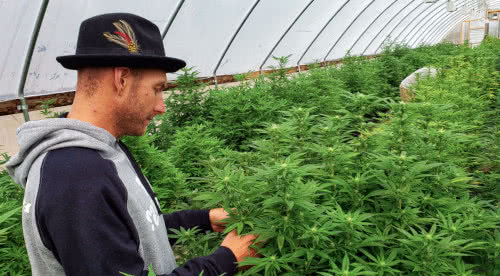
Nothing beats hearing from actual cannabis growers who’ve tried both seeds and clones. Here are a couple of comments gleaned from community discussions:
“I prefer clones so I know exactly what I’m getting … they are already like a 2-4 week old from seed so it’s a lot quicker to harvest … I’ve never noticed any difference in the yield between seeds and clones in my experience.” – u/originfoomanchu
“I prefer seed because I don't mind inconsistencies, I like variety, breeding, It's not commercial so I don't have time constraints or others that entails.” – u/Cuicos
“They both serve a purpose… Depending on your situation, experience and environment, one choice might be better than the other. Comes down to personal preference and goals.” – u/rodyncolo
These comments illustrate perfectly the ongoing debate. Some love the speed and predictability of clones; others appreciate the flexibility and variation from seeds. Ultimately, your own cultivation style and goals should guide your decision.
Seeds vs. Clones for Indoor vs. Outdoor
Indoor: For indoor growers looking to control every variable, clones are an attractive option if they want consistent canopies and predictable harvest times. With clones, you can streamline feeding schedules and harvest everything simultaneously. Seeds can work just as well indoors, but you’ll have to manage pheno variation, which can mean adjusting lights or feeding routines to accommodate different plant heights and maturity rates.
Outdoor: Seeds might hold the edge if you want hearty, deep-rooted plants that stand up to wind and weather. Outdoor cannabis grows can last for many months, giving seeds enough time to germinate, develop strong taproots, and produce enormous yields. Still, plenty of outdoor growers happily transplant well-rooted clones, especially if they’re working with a short growing season and need plants that are already a few weeks ahead of schedule.
Seedsman’s Clone Business: What You Need to Know

Seedsman has built a solid reputation over many years by providing high-quality seeds from a wide variety of breeders. Now, they’ve branched into selling clones—an exciting step forward for those who want to skip germination. While many growers already trust Seedsman for their seed needs, the introduction of clones marks an expansion of convenience and reliability.
“I wonder if the clones are tested for viruses and how well they can keep pests off of it at scale. If so, I’ll definitely keep it in mind.” – u/knowsnothing10
Concerns like these are exactly what Seedsman aims to address with thorough testing and quality assurance.
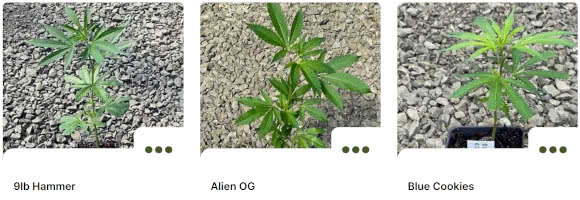
Why Buy Clones From Seedsman?
- Pheno-Hunted Mothers: Seedsman obtains clones from specifically pheno-hunted mother plants. Pheno-hunting involves selecting the best representatives of a strain for traits like vigor, flavor, aroma, potency, and disease resistance.
- Regular Pest & Pathogen Testing: Seedsman performs routine checks for pests, pathogens, and viruses like HLVD. This helps ensure each clone arrives healthy, giving you peace of mind.
- Wide Variety: Seedsman’s clone selection already includes over 40 strains, with more to come. That means you can find the flavor profiles and effects you love without hunting around physically for elusive mother plants.
- Trusted Name: Seedsman has been a big name in cannabis genetics for years. Their expansion into clones brings that same level of professional expertise and dedication to quality.

Shipping Details and Availability
Currently, Seedsman’s Clone Service Is for US Customers Only.
- 4-Clone Minimum: You must order at least 4 clones.
- Next-Day Shipping: The clones ship via UPS overnight from Monday to Wednesday. They are packaged carefully to maintain stability in transit.
- Important: Seedsman does not ship clones to PO boxes or addresses outside the continental US. Be sure you (or a trusted friend) are available to receive the package when it arrives so the plants don’t sit in the box for too long.
FAQ: Ordering, Receiving, and Caring for Your Clones
- Payment Methods: Seedsman accepts credit/debit cards, ACH, and Bitcoin for clone orders.
- Timeline: Orders are processed within 5 business days, with clones shipped out Monday–Wednesday for overnight delivery. Adverse weather or a high volume of orders might delay shipping.
- Damage or Quality Issues: If you receive your clones in poor condition, Seedsman has a dispute window of 24 hours from the time of delivery. Contact them immediately with photos if something is wrong.
- Package Arrival: Clones may appear a little wilted upon unboxing, having traveled in a dark box. Open them promptly, give them some light, and check if they need watering.
- Returning or Exchanging Clones: Due to the perishable nature of live plants, Seedsman does not accept returns or refunds. However, they want to keep customers happy, so they encourage you to contact them if there’s a significant issue.

Tips for Successful Transplant
- Check Them Immediately: Upon receiving your clones, open the box, examine them for obvious damage, and provide light, water, and warmth as needed.
- Don’t Delay Transplant: Clones sit in small 3.5-inch pots. They’ll outgrow those quickly, so be prepared to transplant them into larger containers once they show healthy root development.
- Soil vs. Hydro: Seedsman’s clones come rooted in Jiffy Peat pellets with a PLA netting around them. If you’re a hydro grower, be aware that you’ll have a small amount of peat inside your system. Many hydro cultivators successfully adapt to this by gently placing the pellet into their net pot with hydroton or other media, being careful not to damage roots.
- Beware of Temperature: If the weather in your area is extremely cold or hot, you might want to wait before placing your order. Clones don’t handle extreme shipping conditions well.
- Acclimatize Them: Consider giving your clones a short transition period under moderate light (CFL or LED) and stable humidity before blasting them with intense grow lights or direct outdoor sun. This helps them recover from travel stress.
Conclusion: Which Path Suits You Best?
The seeds vs. clones debate will probably rage on as long as people continue to grow cannabis. And that’s a good thing—both methods have strengths that keep cultivation interesting, diverse, and adaptable to any setting or skill level.
Choose Seeds If...
- You enjoy the process of germination and want to watch the entire lifecycle from day one.
- You crave diversity and the chance to hunt for special phenotypes.
- You value the natural robustness of seed-grown plants with strong taproots, especially outdoors.
- You want the legal and logistical simplicity of mail-order seeds.
Choose Clones If...
- You need a quick turnaround and want to skip the seedling stage.
- You require guaranteed female plants with known traits.
- You have limited time or space and want consistent results.
- You can find a trustworthy source that tests for pests and diseases.
For many growers, the answer is “both.” Breeders may keep a stock of seeds to develop new crosses, but also maintain a mother plant to cut clones for guaranteed stable harvests. You can experiment, discovering that seeds are perfect in certain scenarios (like large outdoor grows) while clones shine in others (like perpetual indoor harvests).
If you’re located in the United States and want to give clones a try, Seedsman’s clone business is a new, convenient, and reliable option to consider. Their focus on quality genetics, regular testing, and discreet shipping goes a long way toward addressing the usual risks of buying clones.
Fortunately, seeds can be shipped worldwide, giving growers access to a vast library of genetics. For recommendations on the best places to buy cannabis seeds online, be sure to explore our list of top seed banks.
Whichever path you choose, the ultimate goal is the same: to grow potent, healthy, and aromatic cannabis that puts a smile on your face and leaves you with a sense of pride. Happy growing, and may your buds be bountiful!
